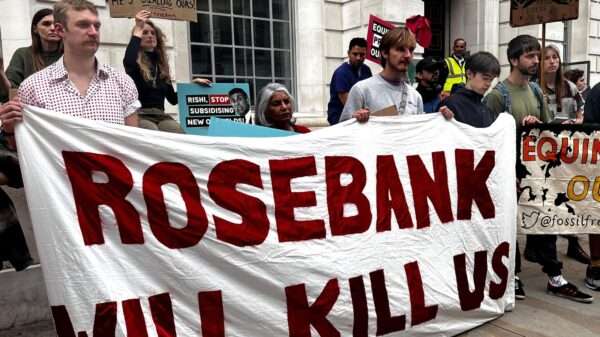In a landmark case that underscores the tension between environmental activism and public order, five members of the climate action group Just Stop Oil have been sentenced to jail for their roles in a plot to block the M25 motorway. This case has drawn significant attention to the methods and motivations of climate activists, as well as the legal ramifications of such disruptive actions.
The activists, described by some as ‘fanatic’ due to their unwavering commitment to their cause, were found guilty of conspiracy to cause a public nuisance. Their plan involved using tactics aimed at creating maximum disruption to raise awareness about the urgency of addressing climate change. The M25, being one of the busiest motorways in the UK, was targeted to amplify their message and force both public and governmental acknowledgment of their demands.
The group, known for their bold and often controversial protests, has a history of employing direct action to draw attention to environmental issues. Just Stop Oil has previously staged demonstrations and blockades, often resulting in significant disruptions to daily life. Their actions are rooted in a sense of desperation, driven by what they perceive as insufficient governmental action on climate change. The protesters believe that only through drastic measures can they prompt meaningful change.
During the trial, the defendants argued that their actions were justified by the extreme threat posed by climate change. They claimed that traditional methods of protest had proven ineffective in spurring adequate governmental response. The defence highlighted the dire scientific predictions regarding global warming and environmental degradation, framing their actions as a necessary wake-up call to a complacent society.
However, the court found that the protesters’ methods crossed the line into criminal behavior. The prosecution argued that while the cause might be noble, the means were unacceptable, endangering public safety and causing significant disruption. The judge in the case acknowledged the urgency of the climate crisis but emphasized that breaking the law and endangering others was not a permissible way to effect change.
The sentences handed down varied, reflecting the different roles and levels of involvement of each defendant. Some received longer sentences due to their leadership roles in planning and executing the blockade. The judge expressed a degree of sympathy for the activists’ motives but maintained that the rule of law had to be upheld.
This case has sparked a broader debate about the balance between the right to protest and the need to maintain public order. Critics of the sentences argue that the legal system is failing to recognize the moral imperative behind such protests. They contend that the activists are being punished for sounding the alarm on an issue that threatens the future of humanity. On the other hand, supporters of the verdict assert that while the cause is just, the methods used by Just Stop Oil set a dangerous precedent for civil disobedience and public safety.
The imprisonment of these five activists is likely to have a chilling effect on similar protests, potentially deterring others from engaging in direct action. However, it may also galvanize further support for the climate movement, as sympathizers rally around the jailed protesters and amplify their message. The case has highlighted the growing sense of urgency among climate activists and the lengths to which they are willing to go to demand action.
As the world grapples with the escalating climate crisis, the actions of groups like Just Stop Oil and the legal responses they provoke will continue to shape the landscape of environmental activism. The sentences handed down in this case serve as a stark reminder of the complex interplay between law, morality, and the fight for a sustainable future.

















































